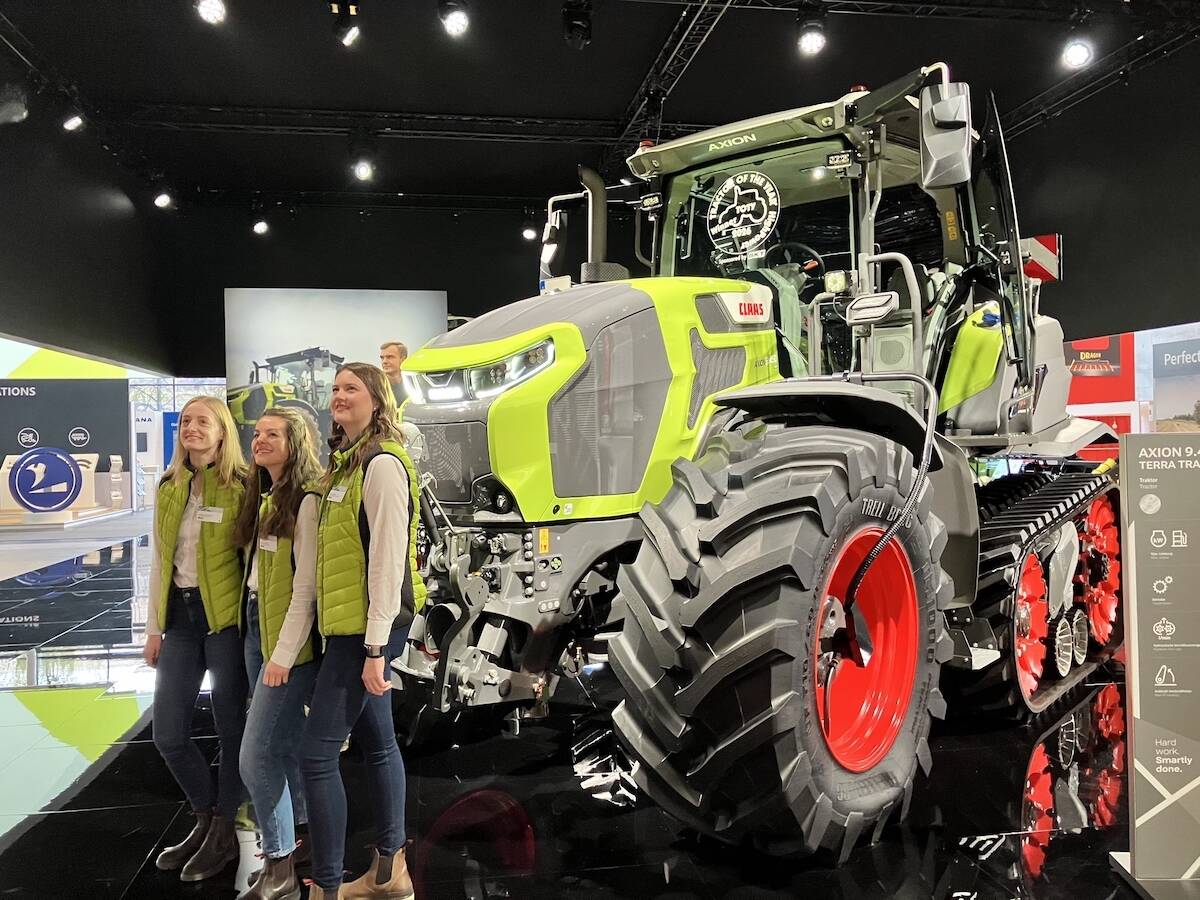The price tag was $204,999,999 higher than it had hoped, but the purchase of 12,000 hopper cars from the federal government is still a good deal for farmers, says the Farmer Rail Car
Coalition.
Since the first day, the coalition of farm groups had campaigned to buy the cars for a nominal fee of $1. It argued that the cars were purchased for the benefit of western farmers who had already paid for them many times over through freight rates.
The coalition’s original business plan, including its projections for car replacement and freight rate savings, was based on a $1 purchase.
Read Also

VIDEO: Claas Axion 9.450 tractor wins ‘Tractor of the Year’ at Agritechnica 2025
On opening day of Agritechnica 2025, Claas’ Axion 9.450 Terra Trac tractor was awarded ‘Tractor of the Year’ for 2026 in the HighPower category.
Coalition president Sinclair Harrison acknowledged that skeptics might question how that business plan can work with a purchase price of $205 million. Obviously, the benefits for farmers won’t be as great as they would have been had the sale price been $1, he said.
“The fact is it will take us a little longer to deliver new cars, and the freight rates won’t come down as much as if we had purchased the cars for a nominal sum.”
But he said the price is affordable and will still produce financial savings for producers, largely through reduced maintenance costs. The coalition said it can save $3,000 per car per year, or about $36 million annually, by farming maintenance out to the lowest bidder.
Harrison said the $205 million purchase price actually works out to $170 million, with the government providing a $35 million credit to the coalition for car refurbishment. The money will be paid over 13 years, working out to roughly $13 million a year, with the FRCC taking ownership in year six.
Industry officials said the price reflects the true market value of the cars, or an average price of about $17,000 per car for the aging fleet.
Key to the deal is the fact that the payments to the government don’t include any interest charges.
“That’s one big reason it’s finance-able,” said Harrison. “The $13 million a year we can manage out of operating revenue, whereas if we had to go and borrow money without owning an asset, that would have been very problematic.”
Paul Beingessner, an official with Southern Rails Co-operative and a longtime observer of the grain transportation industry, said the economic benefit of the deal is diminished by the purchase price.
“It takes a certain bit of the shine off it,” he said. “Some of the dollars that could have been coming back to (farmers) right away, instead it’s 13 years down the road before that debt is paid off.”
Nevertheless, he said the long-term success of the deal will be important in enhancing competition among the railways and showing farmers that if they work together they can accomplish things that will provide broad benefits.
The deal was welcomed by a number of farm groups, as well as the Canadian Wheat Board, on the grounds that not only will it reduce transportation costs, it will also give farmers some influence over the grain shipping system.
“It’s vitally important that farmers gain greater control over grain transportation, since it is so important to our bottom line,” said National Farmers Union president Stewart Wells.
Paul Earl of the University of Manitoba’s Transport Institute rejects the notion that owning the cars and leasing them to the railways will give farmers any influence over grain shipping operations
“It has a certain political cachet to give these cars to farmers, but whether you can transfer that to an operational benefit is in my opinion highly doubtful,” he said, describing the transfer as politically motivated.
Meanwhile, a Conservative member of Parliament said the transfer could be reviewed by a new Conservative government if there is no signed contract.
“I obviously cannot speak for the critic or the party but I think a Conservative government would want to look at the transport committee report that recommended an open and transparent competition,” said Andrew Sheer (Regina Qu’Appelle.)
The deal won’t be finalized until the coalition and the railways sign lease agreements. Harrison said the railways have been given draft agreements and the next step is up to them.
“We see no reason why one or two more meetings can’t put this together,” he said.
Officials with Canadian Pacific Railway and Canadian National Railway, both of which have made it clear they wanted an opportunity to bid against the coalition for the cars, declined to comment in any detail on the negotiations.
“This is a complex process with many issues that we continue to address in a proactive way with the FRCC,” said Ed Greenberg of CPR. He said the railway’s main concerns are to ensure a reliable car supply with no loss of capacity and an effective, low-cost maintenance plan.














